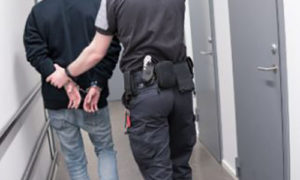 You would not believe how many people I have come across who try to make the argument that since it’s legal in other states, they should be able to do it in Virginia. It may be legal in other states but it does not mean that you have the authority to bring it into Virginia and possess that particular drug.
You would not believe how many people I have come across who try to make the argument that since it’s legal in other states, they should be able to do it in Virginia. It may be legal in other states but it does not mean that you have the authority to bring it into Virginia and possess that particular drug.
There are also a number of misconceptions about what the police officer’s authority in regards to the search and seizure of their vehicle. For example, when someone gets pulled over for let’s say speeding, and a police officer comes up to their car and they smell marijuana, a lot of people don’t realize that the odor of marijuana gives the police officer the right to search a person’s vehicle.
Far too often, that’s exactly how it happens: A person gets pulled over for a traffic related matter and then, the police officer indicates they smell marijuana, they’re searching a car and find a marijuana and they’re being arrested for possession. Many people think, “Hey, the police officer didn’t have any right to search my car.” Well, unfortunately they did have the right if they had probable cause to do so and the case law is very clear on the fact that odor of marijuana is enough for a search of a vehicle.
Another kind of misconception that people have is that when marijuana is found inside the vehicle and if the police officer is asking them questions about it that they have to answer the police officer’s questions. It is a common misconception that is absolutely not true. In almost all situations, we recommend that people do not talk to the police officers. The only thing that you are required to do is identify yourself to the police officer. You don’t have to answer anymore of the officer’s questions.
So, a lot of people, when they get pulled over, the cop finds marijuana inside the car, the cop says, “Is this your marijuana,” and people say yes, and then people come into my office and they say, “I thought that I had to answer the cop’s questions truthfully.” The truth is they are right and they are wrong.Yes, they do have to answer the police officer’s questions truthfully if they are going to answer. Your options are either answer truthfully or don’t answer at all.
I always tell people that for future situations, you need to be as respectful as possible and respectfully decline to answer the question. But if an officer asks you, “Hey, is this your substance, is this your marijuana?” you don’t have to say anything to them; just respectfully decline to answer the question.
Are Illegal Search And Seizures Common in Drug Related Cases?
That and an illegal stop of a person’s vehicle are the most common defenses that you try to use in a drug case.I’d say 75 to 80 percent of drug cases start from a person’s car. They get pulled over for something and the cop finds drugs inside the vehicle. The first thing that you always want to look at is was it a valid stop of your car.
The police officer has to have reasonable suspicion that criminal activity is afoot in order to stop a person’s vehicle. Without that, the stop of their vehicle is invalid and everything that happens after the stop of the vehicle is invalidated as well.So, if you’re driving your car and the cop pulls you over and says, “I didn’t have any reason to pull you over, you just looked suspicious,” that’s not enough and then anything that he finds inside the car is not going to be used against you later on provided that your attorney files a motion to suppress in order to invalidate the stop of the person’s car.
Taking the next step, let’s say there is a valid stop of the person’s vehicle. The next thing you look at is, is there probable cause to search? There are a number of factors that go into the police officer determining whether or not there is probable cause.Is there an odor?Were there statements that were made?Does the police officer see something in plain sight?
If the police officer doesn’t have probable cause, which essentially means more likely than not that you are going to unearth criminal activity, then he can’t search. If he doesn’t, later on if it’s challenged, anything that he finds as a result of that search cannot be used against that person.
For more information on Misconceptions About Drug Charges, a free initial consultation is your next best step. Get the information and legal answers you’re seeking by contacting us today.
